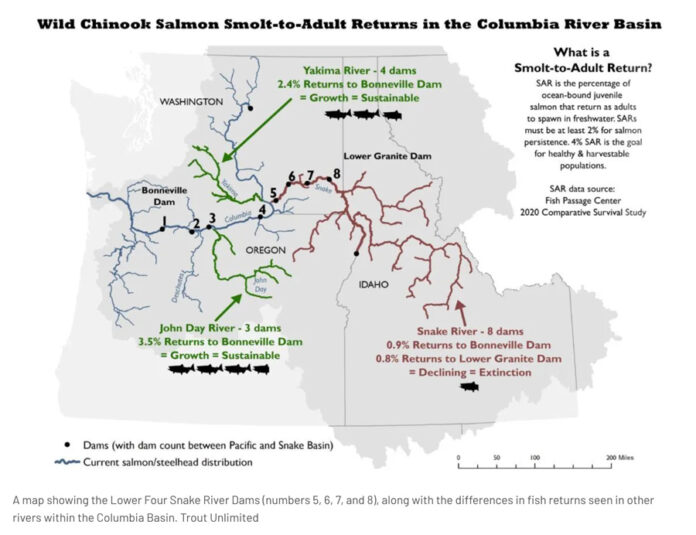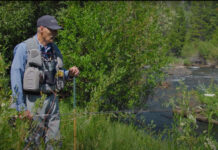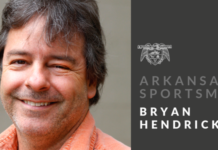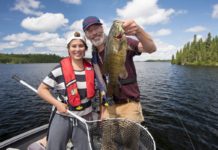Welcome to the latest installment of the Wednesday Wake-Up Call, a roundup of the most pressing conservation issues important to anglers. Working with our friends at Trout Unlimited, Backcountry Hunters & Anglers, the Theodore Roosevelt Conservation Partnership, The Everglades Foundation, Captains for Clean Water, VoteWater.org, Bonefish & Tarpon Trust, and Conservation Hawks (among others), we’ll make sure you’ve got the information you need to understand the issues and form solid opinions.
1. Everglades Foundation Launches a Web-Based Education Platform
Everglades restoration is such a huge project that it can be difficult to get your arms around. If you’ve struggled to put all the pieces together or to explain the issues to someone else, there’s a new tool to help. The Everglades Foundation has launched Everglades EcoQuest, the first free web-based learning platform with educational games about the Everglades. It’s designed for students, but anyone can give it a go.
The digital platform, developed with support from Florida Power & Light Company through its charitable arm, the NextEra Energy Foundation, is designed to teach students about the Everglades’ unique habitats, plants and animals, and ecosystem restoration.
As a new component of The Everglades Foundation’s robust Everglades Literacy Program’s educational curriculum, Everglades EcoQuest is set to enhance Everglades education and, in turn, bolster efforts to protect Florida’s natural environment.
Click here to visit Everglades EcoQuest
Related Stories:
2. Why It’s Time to Free the Lower Snake River

The movement to remove the dams on the Lower Snake River seems to be gaining momentum. Writing in Outdoor Life, Dac Collins offers a compelling argument for saving these historic salmon runs by removing the barriers that keep the fish from spawning:
Historically, out of the roughly 10 to 16 million fish that would return to the Columbia River Basin each year, over 2 million would swim up the Snake and its tributaries to spawn. This included sockeye salmon, coho (or silver) salmon, Chinook (or king) salmon, and steelhead (a rainbow trout that migrates to the ocean and back).
Today, these fish are returning at less than two percent of their historical abundance as their ancestral migration route is choked by four aging dams that are getting harder and harder to justify. Every one of the anadromous fish stocks native to the watershed is now endangered or threatened, while some runs have collapsed altogether.
Click here to read the full story in Outdoor Life
Related Story:
3. Tom Rosenbauer Interviews Sue Doroff of Western Rivers Conservancy
For the final episode of the Exploring the Great Rivers of the West series, Sue Doroff, president and cofounder of Western Rivers Conservancy, sat down for a conversation with Tom Rosenbauer, author and host of the Orvis Fly-Fishing Podcast. In this hour-long interview, Sue peeled back the layers on some of WRC’s most exciting projects, covering everything from conservation finance to their innovative approach to keeping water in-stream on rivers like the Wise and Big Hole in Montana. The interview was recorded live at the Presidio Officers’ Club in San Francisco on November 15, 2023.
Click here to learn more about Western Rivers Conservancy
4. Want to Be a Volunteer Fishing Scientist in Yellowstone National Park?

Yellowstone Fly Fishing Volunteer Program (YFFVP) coordinator Paul Weamer says that they are nearly ready to begin scheduling volunteers for the 2024 . If you’re a fly fisher who cares about the future of Yellowstone National Park’s native fish, consider volunteering for the 2024 YFFVP. Because staff cannot address all of the park’s aquatic issues, a program was established wherein fly fishing volunteers use catch-and-release angling as a capture technique for gathering biological information on fish populations throughout the park. Since it began in 2022, the VYFFVP has resulted in an immense amount of information that would otherwise have not been available to park managers.
Send an email to volunteerflyfishing@yellowstone.org to receive more information and to be added to the program’s volunteer database.
Click here to learn more about the YFFVP
Credit: Source link






























